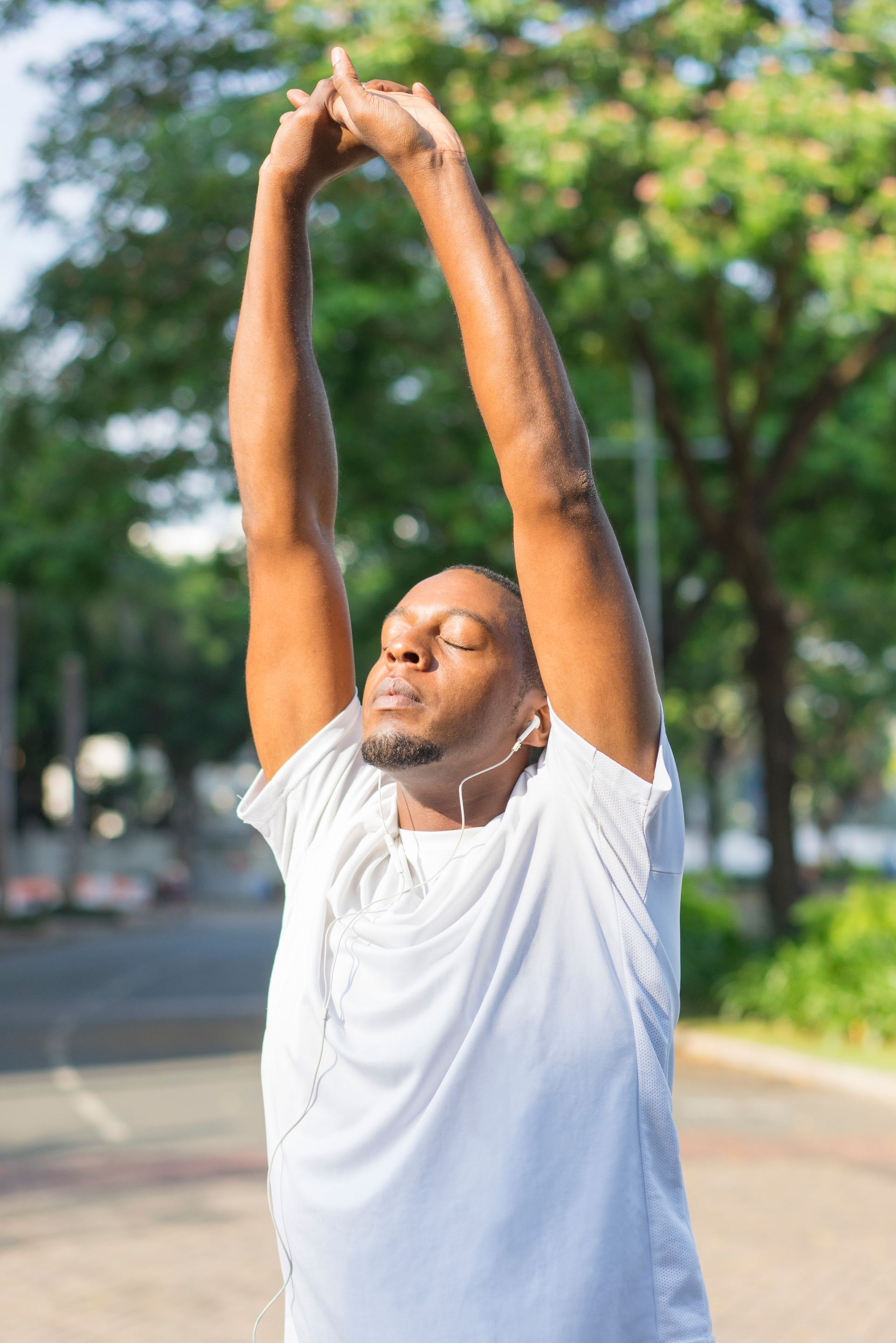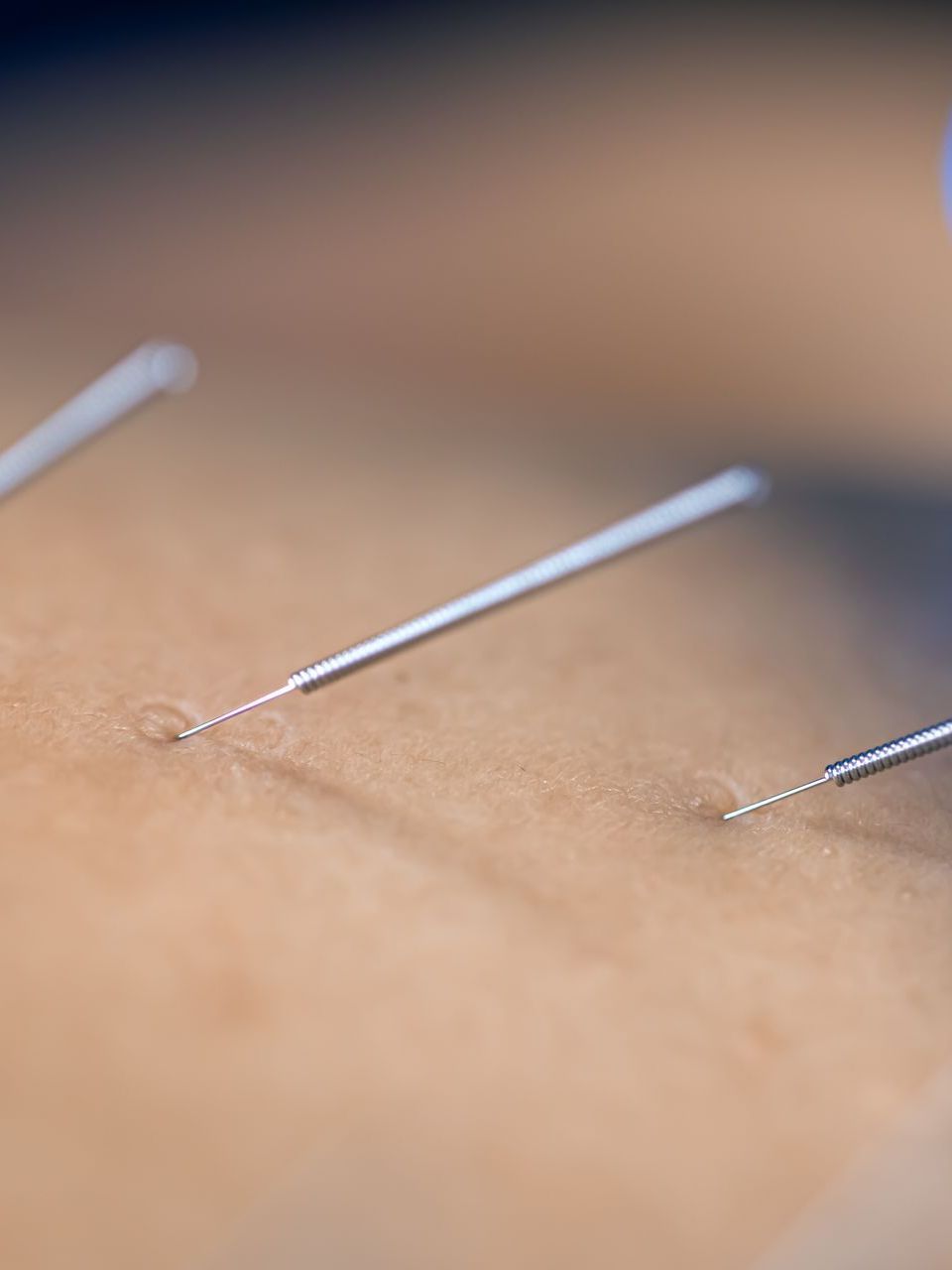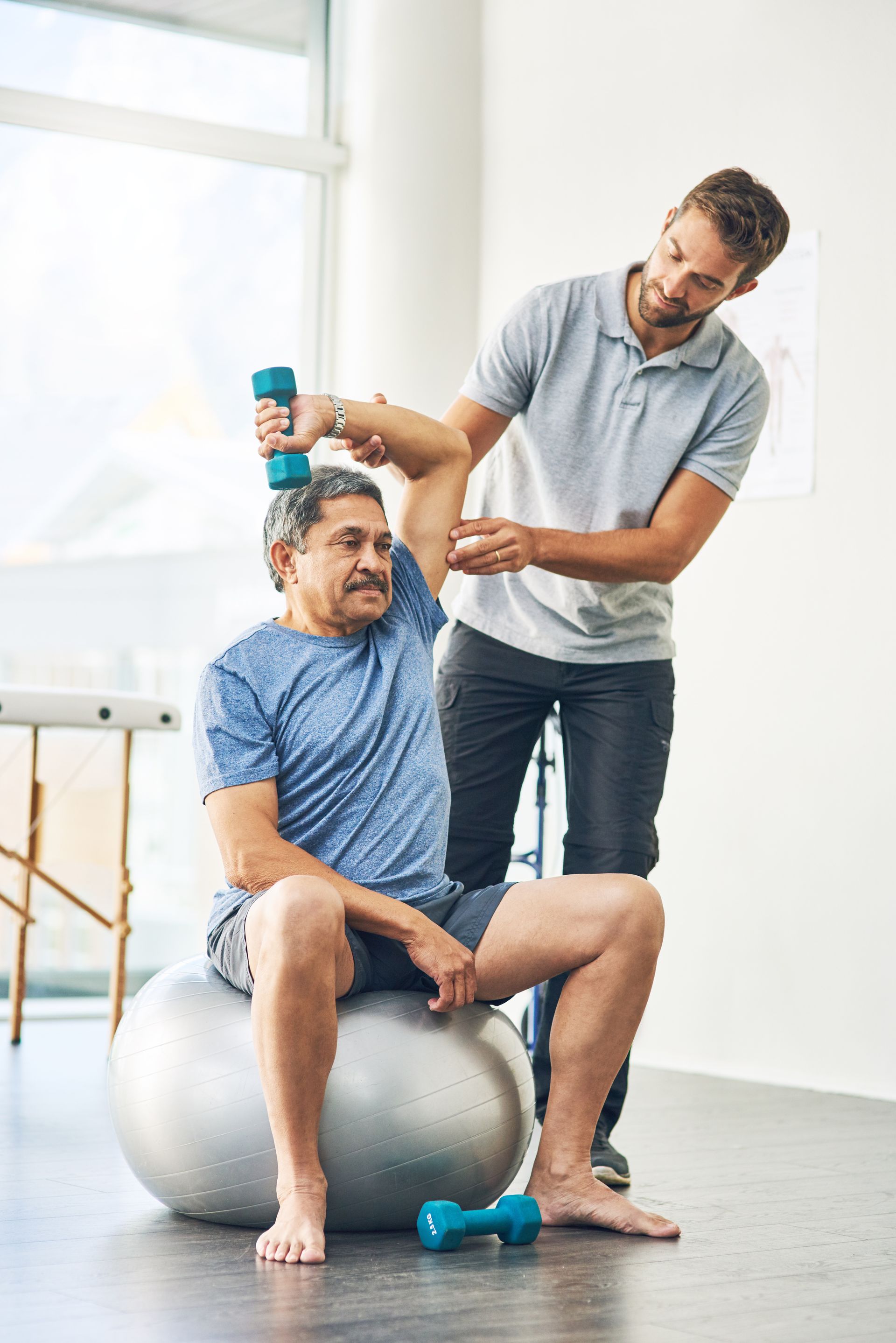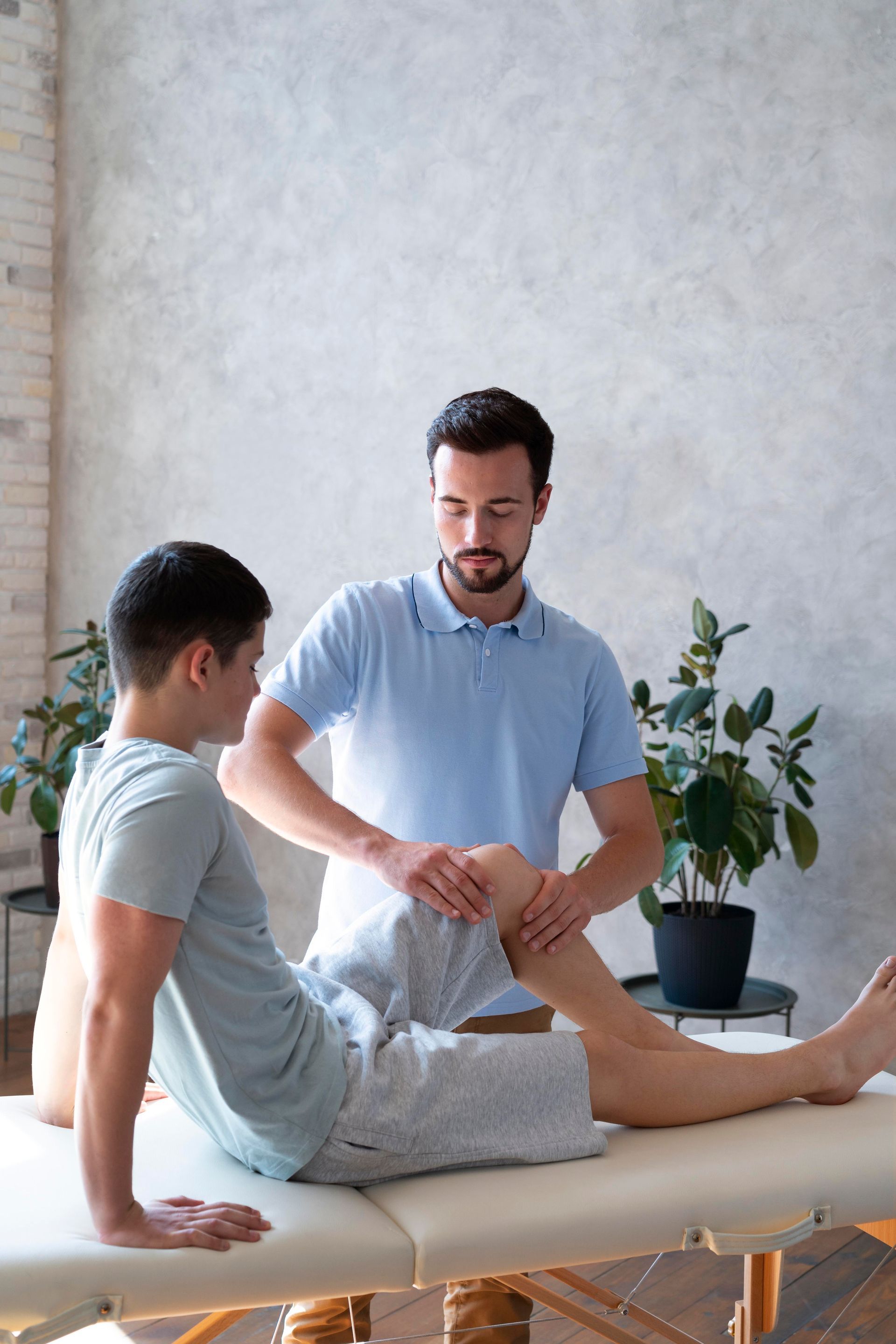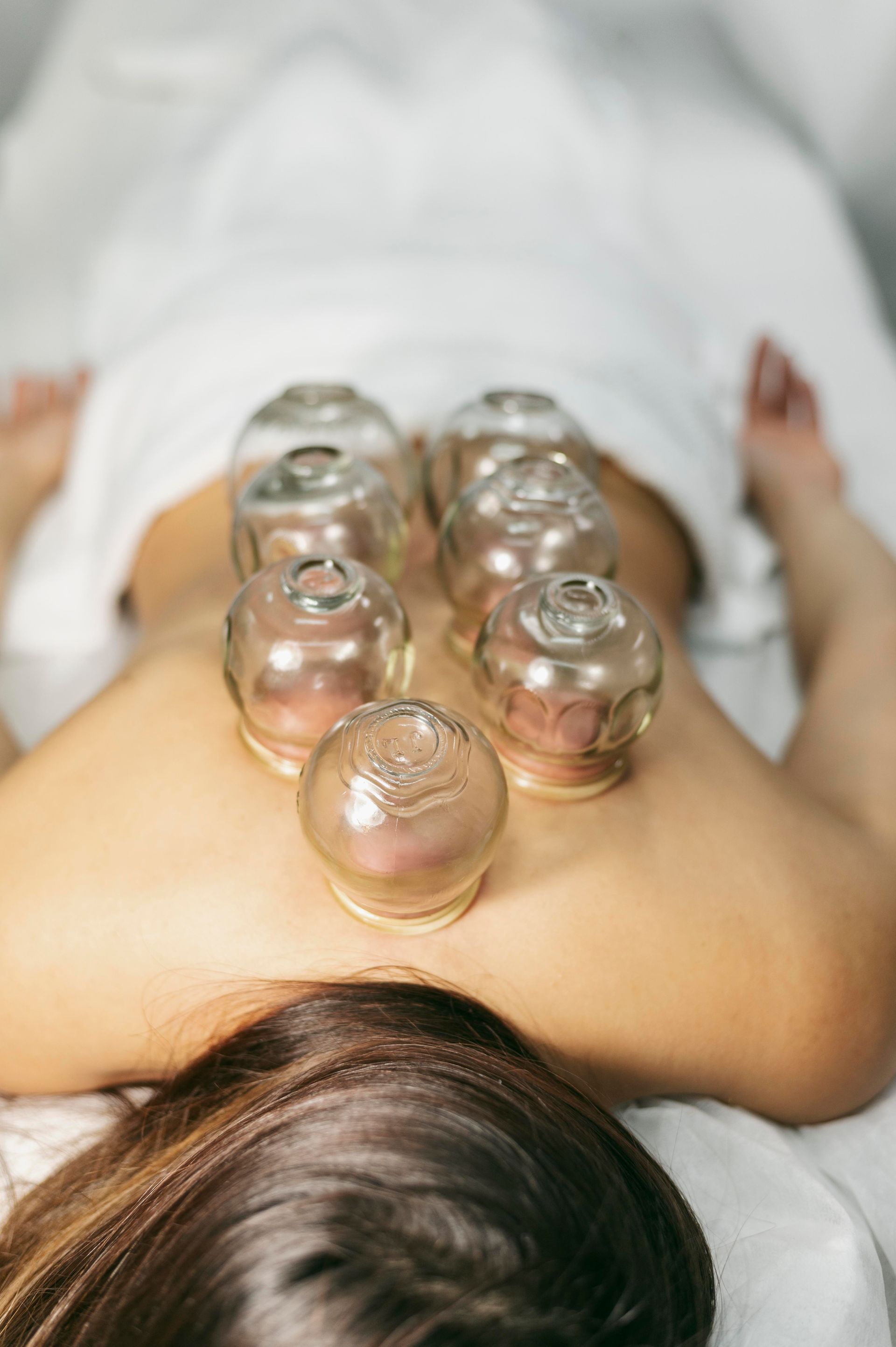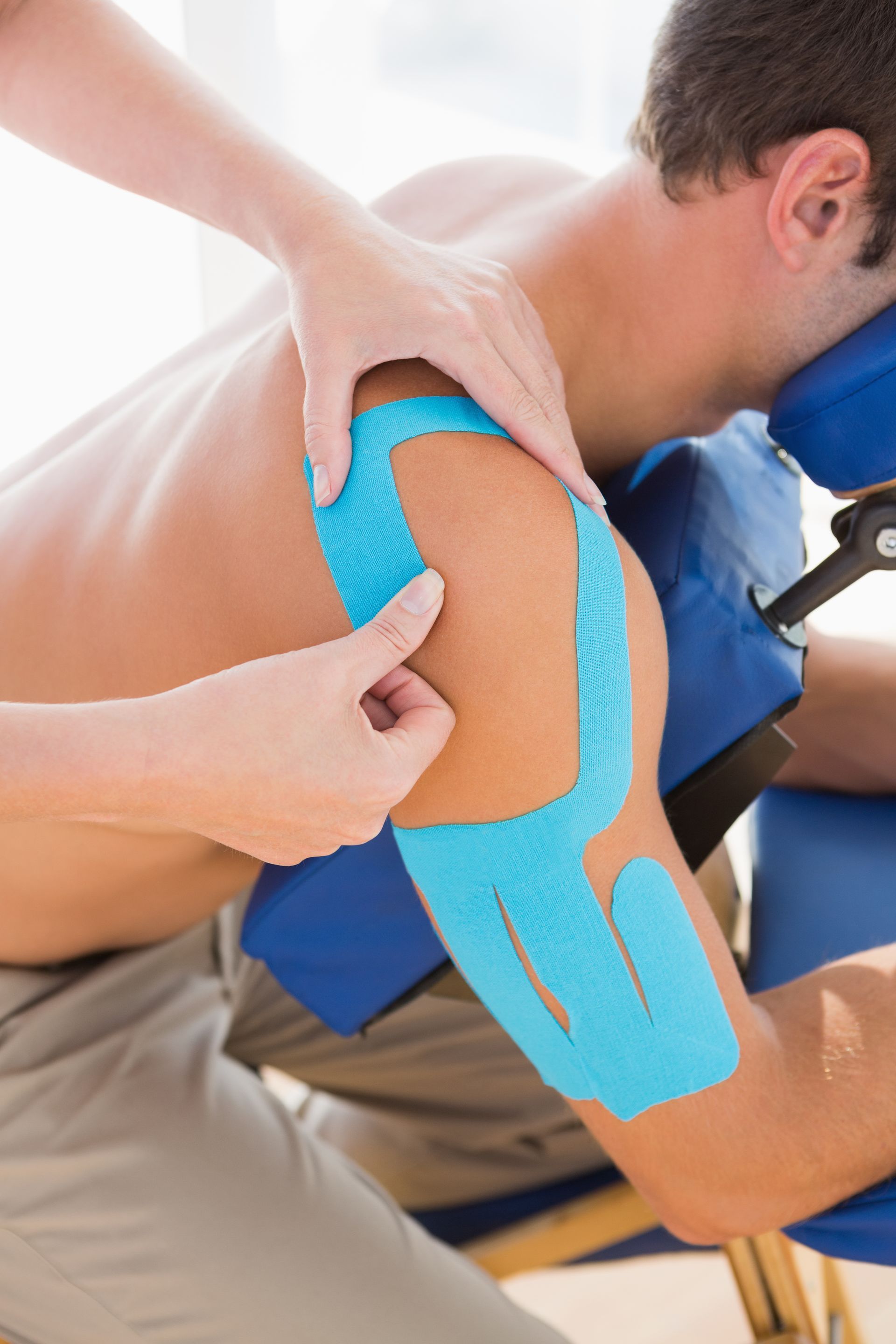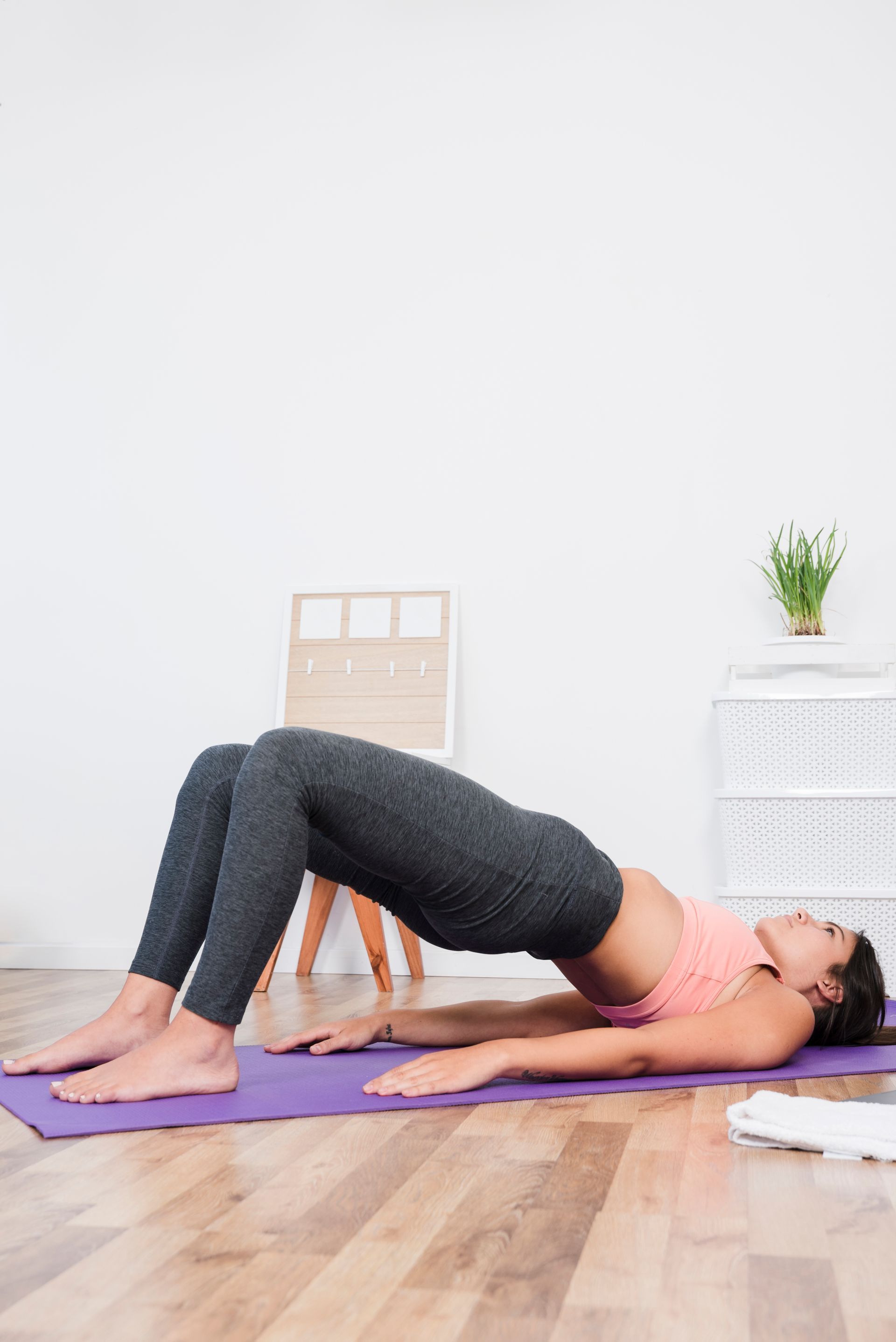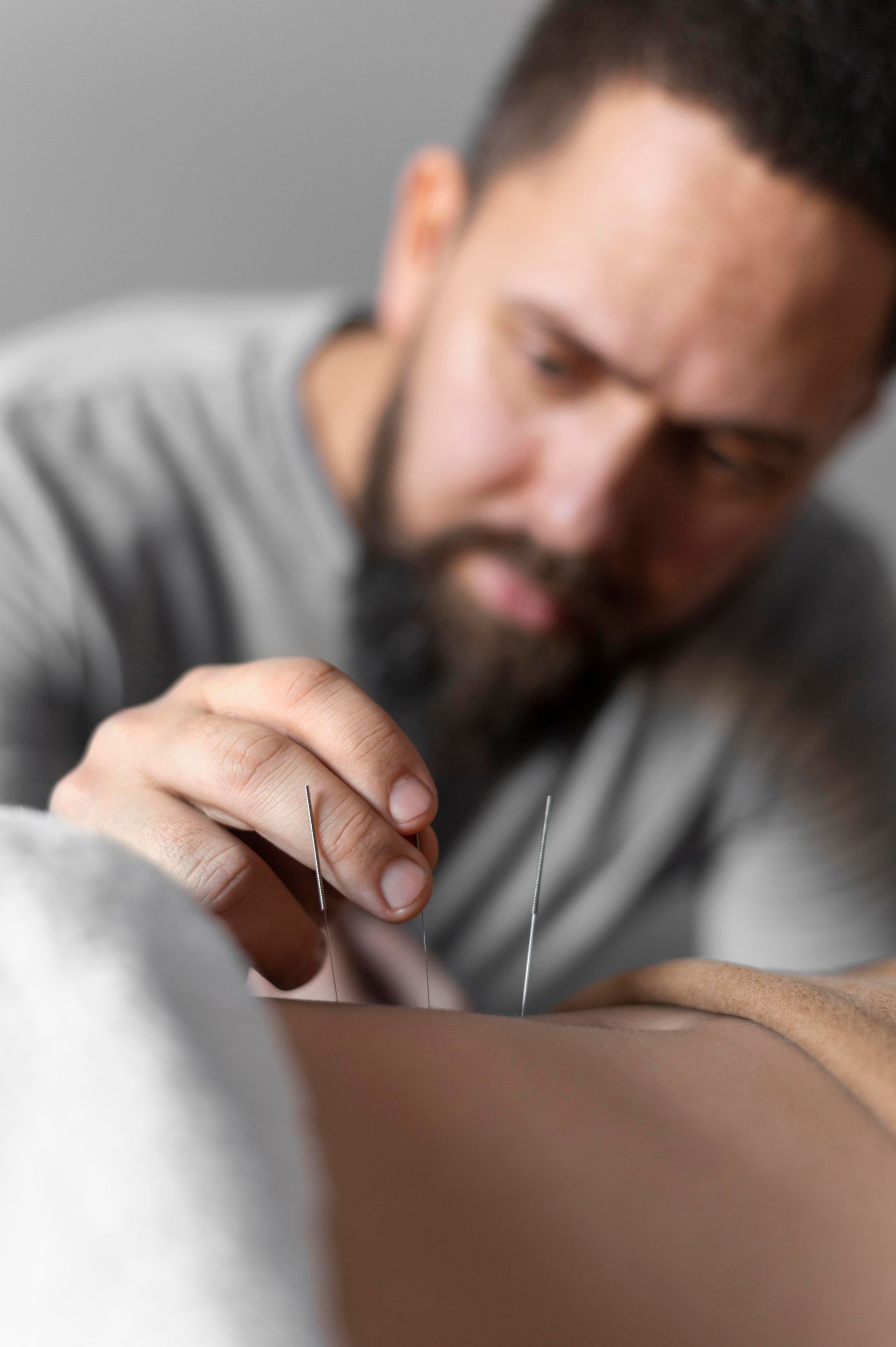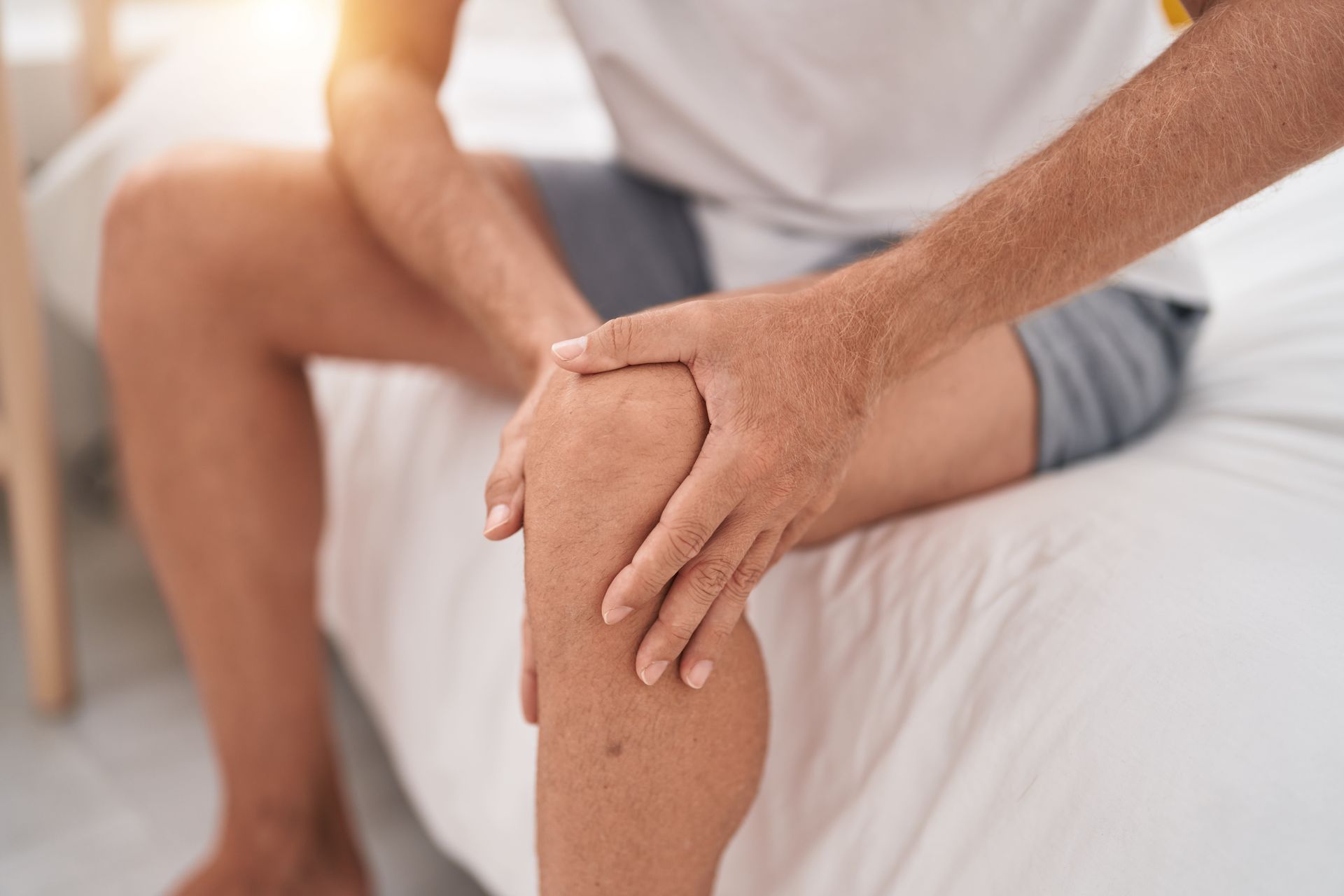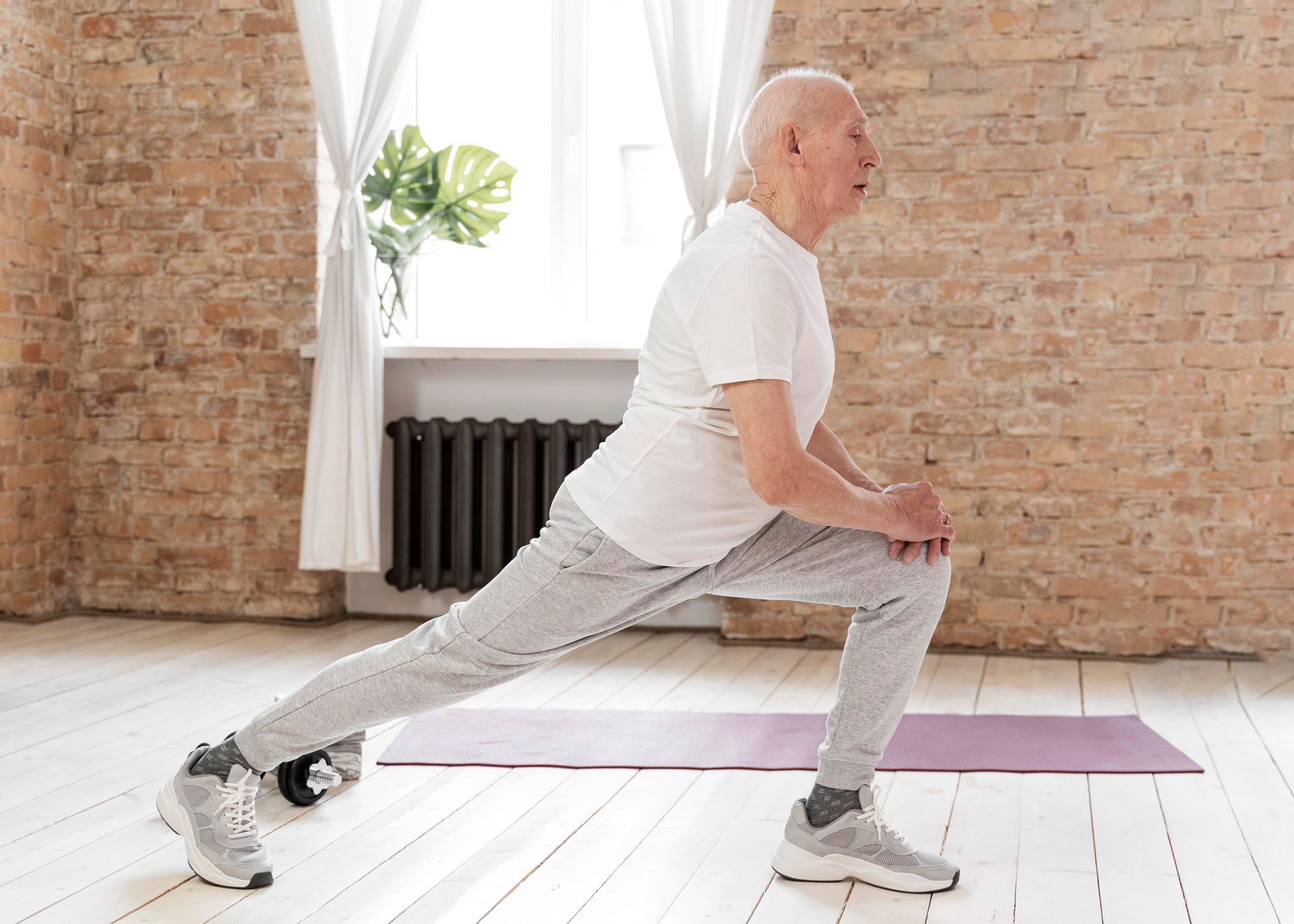Get In Touch
Call: (204) 261-7190
Fax: (204) 261-7191
Email: pembinaphysio@gmail.com
Business Hours
- Monday
- -
- Tuesday
- -
- Wednesday
- -
- Thursday
- -
- Friday
- -
- Saturday
- -
- Sunday
- Closed
Dry Needling
Alleviate Muscle Stiffness with Our Expert Dry Needling Techniques
At Pembina Physiotherapy & Sports Injury Clinic, our dry needling service is designed to alleviate muscle tension and pain. This technique involves inserting thin needles directly into myofascial trigger points - tight knots within a muscle that can cause pain over a large area. Our therapists are trained in identifying these trigger points and applying the dry needling technique effectively. This service can be particularly beneficial for those dealing with chronic musculoskeletal conditions, sports injuries, or muscular tension due to stress. Trust our team to provide this specialized treatment as part of a comprehensive approach to your health and wellness.
About Dry Needling
Dry needling is a therapeutic technique offered at Pembina Physiotherapy & Sports Injury Clinic, designed to alleviate muscle tension and pain. This technique is often used in conjunction with other treatments as part of a comprehensive approach to managing musculoskeletal conditions. Our therapists are trained in the application of dry needling and use it to effectively address specific areas of discomfort and enhance overall function.
Note: Dry needling is an additional service that cannot be booked independently at our clinic. It is designed to be utilized as an add-on to a physiotherapy assessment or treatment plan, thereby complementing the overall therapeutic process.
-
How It Works
Dry needling involves the insertion of thin, sterile disposable needles directly into myofascial trigger points - tight knots within a muscle that can cause pain over a large area.
The insertion of the needle can help to release this knot, relieving pain and improving muscle function. The term "dry" refers to the fact that the needles do not inject any substance into the body.
-
Benefits of Dry Needling
The benefits of dry needling are extensive. It can provide immediate relief from muscular pain and stiffness, improve flexibility, and enhance overall function.
By targeting specific trigger points, dry needling can address the source of pain rather than just treating the symptoms. This can lead to more effective and long-lasting relief.
Additionally, dry needling can help to improve blood flow to the treated area, promoting healing and recovery.
-
Who Is It For
Dry needling can be beneficial for a wide range of individuals. It's particularly effective for those dealing with chronic musculoskeletal conditions, sports injuries, or muscular tension due to stress.
However, as with any treatment, it's important to discuss your health history and current health status with a healthcare professional before starting dry needling. At Pembina Physiotherapy & Sports Injury Clinic, our therapists will conduct a thorough assessment to determine if dry needling is the right treatment option for you.
Dry Needling Vs Acupuncture
Dry needling and acupuncture are both therapeutic techniques that involve the insertion of thin needles into the body, but they have different origins, purposes, and methods of application.
While both techniques can be effective for pain relief and muscle relaxation, the choice between dry needling and medical acupuncture will depend on your specific condition, goals, and overall treatment plan. At Pembina Physiotherapy & Sports Injury Clinic, our therapists are trained in both techniques and can recommend the most suitable approach for you.
-
Acupuncture
Medical acupuncture represents a contemporary adaptation of the age-old Chinese practice, specifically designed to align with Western medical traditions. This modern approach to acupuncture is grounded in a scientific understanding of human anatomy and physiology. It involves the strategic insertion of thin needles to stimulate the nervous system.
This stimulation is believed to trigger the body's healing processes and provide pain relief. Medical acupuncture can be utilized to address a broad spectrum of health conditions. These range from musculoskeletal issues like back pain or arthritis, and more. It's a versatile therapeutic tool in the realm of modern healthcare.
-
Dry Needling
Dry needling is a therapeutic technique that primarily focuses on alleviating musculoskeletal pain. This method specifically targets myofascial trigger points, often referred to as "knots" in the muscles. These knots can cause muscle tension, pain, and can hinder proper muscle function.
By inserting thin needles into these trigger points, dry needling aims to relieve this tension, reduce associated pain, and ultimately improve overall muscle function.
Unlike acupuncture, which is rooted in Traditional Chinese Medicine, dry needling is based on Western anatomical and neurophysiological principles. It's a valuable tool in physiotherapy for managing and treating a variety of musculoskeletal conditions.
Frequently Asked Questions
At Pembina Physiotherapy & Sports Injury Clinic, we understand that you may have questions about dry needling, especially if you're new to this form of treatment. We believe in empowering our clients with knowledge to make informed decisions about their health. To help you understand more about dry needling, we've compiled a list of frequently asked questions. These cover a range of topics from what to expect during a session to the benefits of dry needling. If you have additional questions, don't hesitate to reach out to us.
-
What can I expect during a dry needling session?
During a dry needling session, our trained therapists will first assess your condition and identify the trigger points that need to be addressed. They will then insert thin, sterile needles directly into these points.
You may feel a slight prick or a muscle twitch when the needle is inserted. The entire process is usually not painful, but you may experience some temporary soreness at the needle sites after the session.
-
Is dry needling painful?
Most people do not find dry needling to be painful. The needles used are very thin, and while their insertion can cause a brief, minor discomfort or a muscle twitch, this sensation is typically short-lived. After the treatment, you may feel some muscle soreness or aching, similar to what you might experience after a vigorous workout.
This is a normal response and should subside within a day or two. If you have any concerns about discomfort during or after dry needling, please discuss them with your therapist. Our goal is to provide a therapeutic experience that is as comfortable as possible for you.
-
How many dry needling sessions will I need?
The number of dry needling sessions required can vary greatly depending on your specific condition and how your body responds to the treatment. Some people experience significant relief after just one or two sessions, while others may need multiple sessions over several weeks to achieve the desired results.
Your therapist will be able to give you an estimate after your initial assessment. It's important to remember that everyone's body responds differently to treatment, and patience may be needed to see the full benefits of dry needling.
-
What should I do after a dry needling session?
After a dry needling session, it's important to drink plenty of water to help flush out any toxins released from the muscles. You may also want to apply heat to the treated areas to help relieve any post-treatment soreness. Gentle stretching and movement can also be beneficial.
It's normal to feel a bit tired after a dry needling session, so you may want to schedule some downtime afterwards. If you have any questions or concerns after your session, don't hesitate to contact us. We're here to support you throughout your recovery process.
Our Services
Pembina Physiotherapy & Sports Injury Clinic offers services like massage therapy, acupuncture, dry needling, custom orthotics, and manual therapy. We also provide specialized treatments for sports injuries, post-surgical recovery, and conditions requiring pelvic floor, vestibular, and pediatric physiotherapy. Our goal is to enhance your health and quality of life through comprehensive, personalized care.
-
Physiotherapy
Button -
Manual Therapy & Manipulation
Button -
Sports Injury
Button -
Cupping
Button -
Taping
Button -
Exercise
Button -
Post-Surgical Treatment
Button -
Pelvic Floor Physiotherapy
Button -
Vestibular Physiotherapy
Button -
Pediatric Physiotherapy
Button
Acupuncture
ButtonPost Op Hip & Knee Class
ButtonCustom Orthotics
ButtonMassage Therapy
ButtonImprove Mobility with Our Post Op Hip & Knee Classes
At Pembina Physiotherapy & Sports Injury Clinic, we offer specialized post op hip and knee classes designed to improve mobility, strength, and overall function. These classes are led by our experienced physiotherapists who provide personalized exercises and education to manage hip and knee conditions effectively. Whether you're recovering from surgery, dealing with chronic pain, or looking to prevent future injuries, our post op hip and knee classes can support your journey towards improved health and wellness.
Pembina Physiotherapy & Sports Injury Clinic
Address
Phone
(204) 261-7191
Fax
Business Hours
- Monday
- -
- Tuesday
- -
- Wednesday
- -
- Thursday
- -
- Friday
- -
- Saturday
- -
- Sunday
- Closed

